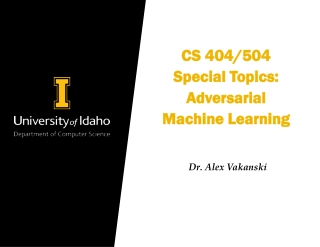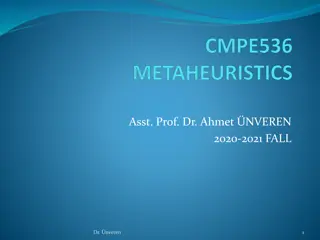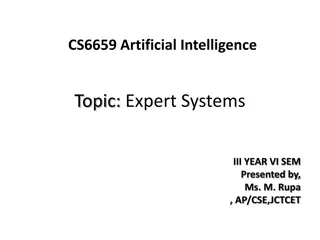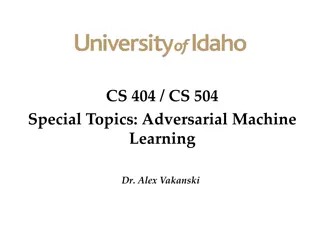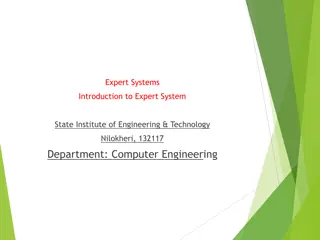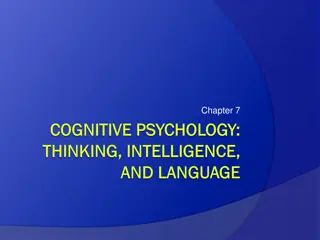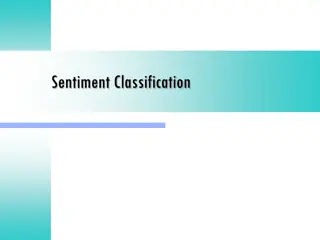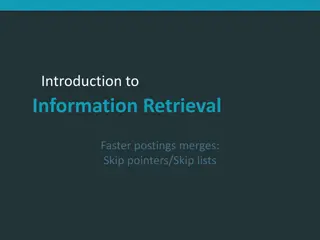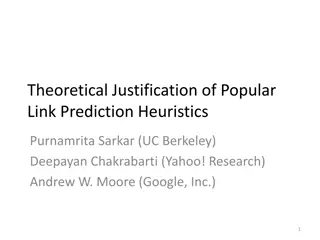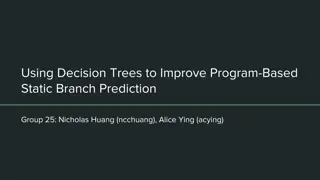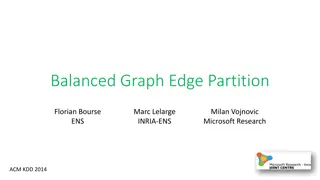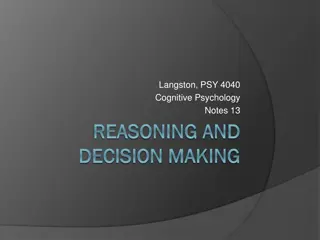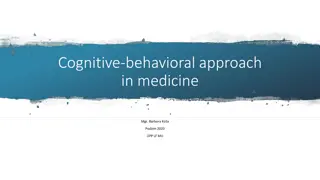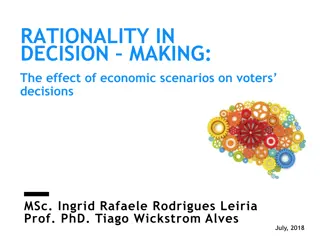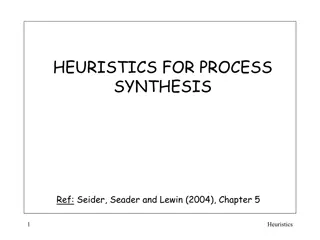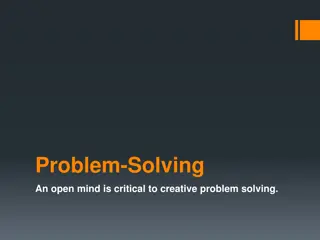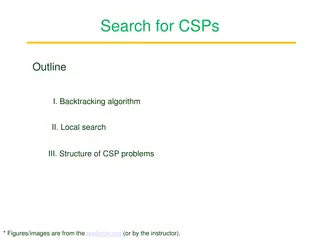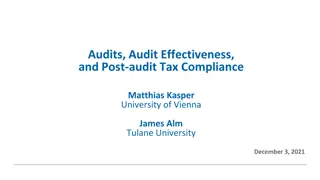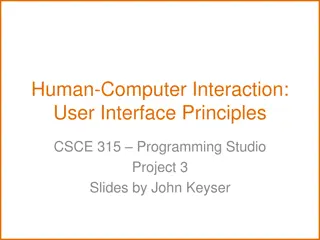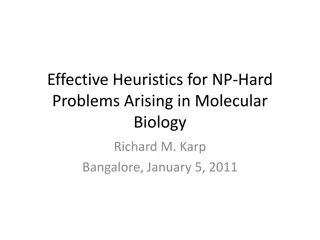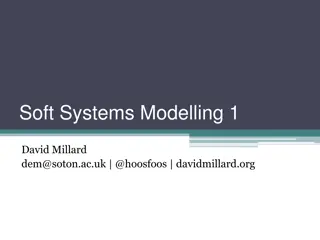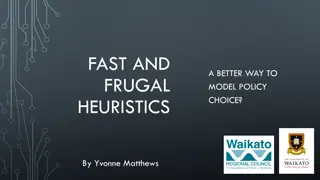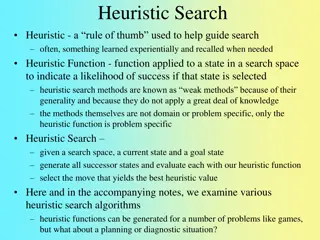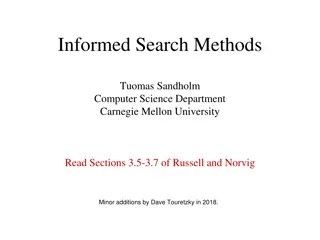Adversarial Machine Learning in Cybersecurity: Challenges and Defenses
Adversarial Machine Learning (AML) plays a crucial role in cybersecurity as security analysts combat continually evolving attack strategies by malicious adversaries. ML models are increasingly utilized to address the complexity of cyber threats, yet they are susceptible to adversarial attacks. Inves
2 views • 46 slides
Course Overview: Heuristics and Metaheuristics in Operations Research
Explore the practical issues, methods of assessment, recommended textbooks, course catalogue description, aims, and objectives of the course taught by Asst. Prof. Dr. Ahmet NVEREN on Heuristics and Metaheuristics. The course delves into various heuristic methods, metaheuristics, and optimization tec
3 views • 6 slides
Understanding Expert Systems in Artificial Intelligence
Expert systems in artificial intelligence are computer applications that utilize both facts and heuristics to solve complex decision-making problems based on knowledge acquired from experts. These systems play a crucial role in various domains such as diagnostics, chess playing, financial planning,
0 views • 24 slides
Exploring Adversarial Machine Learning in Cybersecurity
Adversarial Machine Learning (AML) is a critical aspect of cybersecurity, addressing the complexity of evolving cyber threats. Security analysts and adversaries engage in a perpetual battle, with adversaries constantly innovating to evade defenses. Machine Learning models offer promise in combating
0 views • 43 slides
Understanding Expert Systems in Computer Engineering
Expert systems are interactive computer-based decision tools that utilize facts and heuristics to solve various problems based on knowledge acquired from experts. This system consists of three main components: User Interface, Inference Engine, and Knowledge Base. The User Interface facilitates commu
4 views • 29 slides
Understanding Heuristic Evaluation in User Interface Design
Heuristic evaluation is an analytical method where experts evaluate interfaces based on usability principles. This evaluation helps in identifying potential design issues that may impact user satisfaction. The process involves a small group of evaluators reviewing the interface against a set of reco
5 views • 12 slides
Understanding Cognitive Psychology: Thinking, Intelligence, and Language
Cognitive psychology explores the processes of thinking, intelligence, and language. It delves into mental activities such as organizing information, problem-solving, and forming concepts. Concepts like superordinate, basic level, and subordinate concepts are discussed alongside problem-solving meth
0 views • 37 slides
Understanding Sentiment Classification Methods
Sentiment classification can be done through supervised or unsupervised methods. Unsupervised methods utilize lexical resources and heuristics, while supervised methods rely on labeled examples for training. VADER is a popular tool for sentiment analysis using curated lexicons and rules. The classif
7 views • 17 slides
Eight Puzzle Solver Implementation in Python
Explore a simple implementation of an eight puzzle solver in Python using the A* algorithm with three different heuristics (nil, out of place tiles, Manhattan distance). The implementation involves modeling states, defining legal actions, determining state transitions based on actions, and utilizing
4 views • 11 slides
Faster Postings Merges with Skip Pointers in Information Retrieval
Enhance the speed of postings merges in information retrieval by utilizing skip pointers and skip lists strategically. Learn how to augment postings with skip pointers, optimize query processing with skips, decide where to place skips, and adopt simple heuristics for skip pointer placement.
0 views • 7 slides
Understanding Cognition and Decision Making
Cognition encompasses mental activities like thinking, knowing, and remembering, while concepts simplify thinking by grouping similar objects. Cognitive strategies and obstacles in problem-solving, such as algorithms and confirmation bias, also play a crucial role. The "Aha!" moment reflects sudden
0 views • 15 slides
Efficient Ways to Get Data and Code into Workspace
Explore various tools and experimental methods for importing, processing, and analyzing data and code into your workspace efficiently. Discover a one-stop utility for quick resource retrieval, syntax guidelines, and plain name heuristics. Enhance your workflow and get started on bringing in resource
0 views • 46 slides
Simple Implementation of 8-Puzzle Solver in Python: P8.py
This Python script, p8.py, demonstrates a straightforward implementation of solving an 8-puzzle using the A* algorithm with three different admissible heuristics. It represents states and actions, provides legal actions for the puzzle, and computes the results of actions on states. The code models s
0 views • 10 slides
Understanding 8 Puzzle Problem in Python
Explore a simple implementation of the 8 puzzle problem in Python by solving it using the A* algorithm with three different heuristics: 1. Number of tiles out of place, 2. Manhattan distance, and 3. Object-oriented programming approach. Learn how to model the state, goal test, legal actions, results
0 views • 10 slides
Theoretical Justification of Popular Link Prediction Heuristics
This content discusses the theoretical justification of popular link prediction heuristics such as predicting connections between nodes based on common neighbors, shortest paths, and weights assigned to low-degree common neighbors. It also explores link prediction generative models and previous empi
0 views • 39 slides
Heuristic Search Algorithms in Artificial Intelligence
In the realm of artificial intelligence, heuristic search algorithms play a pivotal role in efficiently navigating large search spaces to find optimal solutions. By leveraging heuristics, these algorithms can significantly reduce the exploration of the search space and guide agents towards the goal
0 views • 14 slides
Using Decision Trees for Program-Based Static Branch Prediction
This presentation discusses the use of decision trees to enhance program-based static branch prediction, focusing on improving the Ball and Larus heuristics. It covers the importance of static branch prediction, motivation behind the research, goals of the study, and background on Ball and Larus heu
0 views • 36 slides
Balanced Graph Edge Partition and Its Practical Applications
Balanced graph edge partitioning is a crucial problem in graph computation, machine learning, and graph databases. It involves partitioning a graph's vertices or edges into balanced components while minimizing cut costs. This process is essential for various real-world applications such as iterative
0 views • 17 slides
Understanding Reasoning and Decision-Making in Cognitive Psychology
Exploring the intricacies of reasoning, decision-making, and logic in cognitive psychology, this content delves into how humans process information, make choices based on heuristics, and struggle with understanding probability. The challenges in conditional reasoning are highlighted through examples
0 views • 79 slides
Understanding Cognitive Behavioral Approach in Medicine: A Heuristic Perspective
Cognitive-behavioral approach in medicine, analyzed through affective heuristics and problem-solving heuristics, explores factors influencing decision-making processes and the dual processes theory. Key concepts include fast emotional reactions, reliance on emotion in judgment, reducing cognitive lo
0 views • 30 slides
Analyzing Economic Scenarios' Impact on Voters' Decision Making
This research explores how economic scenarios influence voters' decisions in a presidential election. It delves into the rationality assumptions in decision making, cognitive biases, and behavioral economics. Using experimental methodology, the study aims to uncover how voters weigh costs and benefi
0 views • 22 slides
Heuristics for Process Synthesis
This lecture explains heuristic rules that expedite the selection and positioning of processing operations in assembling flowsheets for process synthesis. The importance of selecting non-toxic reaction paths, distributing chemicals effectively, and applying heuristics in separation processes is high
0 views • 46 slides
CSSE 375: Software Construction and Evolution - Course Overview and Final Exam Preview
Delve into the world of software construction and evolution with CSSE 375. Explore topics such as software degradation, information loss due to change, and the art of avoiding pitfalls in software development. The course covers essential aspects like software change, refactoring, program understandi
0 views • 21 slides
The Importance of Problem-Solving Skills in Everyday Life
Developing effective problem-solving skills is crucial as they play a significant role in various aspects of our daily lives, from simple tasks to complex challenges. This article explores the significance of problem-solving, provides strategies like algorithms and heuristics, discusses obstacles en
0 views • 34 slides
Overview of CSP Algorithms and Techniques
Explore the key concepts of Constraint Satisfaction Problems (CSPs) including backtracking search, local search, and the structure of CSP problems. Learn about important algorithms such as depth-limited search and heuristics like Minimum Remaining Values (MRV) and Degree Heuristics. Discover the com
1 views • 22 slides
Understanding the Impact of Audits on Post-Audit Tax Compliance
Audits have direct and indirect effects on taxpayers, influencing compliance behaviors. While more audits generally lead to increased compliance, outcomes can be ambiguous, with some studies showing a decline in post-audit compliance. Behavioral responses to tax audits are driven by perceived risks
0 views • 15 slides
Principles of User Interface Design in Human-Computer Interaction
User interface design principles play a crucial role in Human-Computer Interaction, emphasizing the importance of aesthetics, anticipation, autonomy, color usage, and consistency in creating effective interfaces. These principles guide designers in crafting interfaces that are visually appealing, us
0 views • 24 slides
Ranking Refactoring Suggestions Based on Historical Volatility
Design problems in software development can be identified based on non-compliance with design principles, excessive metric values, violations of design heuristics, and lack of design patterns. By assessing the urgency to resolve these problems using past code versions, a ranking mechanism can priori
0 views • 30 slides
Understanding Cognitive Biases in Decision Making
Explore Tversky and Kahneman's research on heuristics and biases, Slovic's insights on risk misperceptions, and the implications of cognitive biases in decision-making processes. Delve into topics such as representativeness, availability bias, anchoring, and Prospect Theory by Kahneman and Tversky.
0 views • 12 slides
Analysis of Branching Heuristics in SAT Solvers
This content delves into various branching heuristics used in SAT solvers, such as Exponential Recency Weighted Average, Conflict History-Based, and Tie-break of VSIDS. It discusses the decision-making processes of solvers and compares different approaches to handle ties and improve solver performan
0 views • 16 slides
Job Scheduling Across Geo-distributed Datacenters
Scheduling jobs across geo-distributed datacenters poses challenges such as optimizing job completion time, reducing data transfer costs, and coordinating tasks across multiple locations. Various strategies like reordering-based approaches and scheduling heuristics are explored to enhance job schedu
0 views • 32 slides
Insights into NP-Hard Problems in Molecular Biology and Genetics
Understanding the complexity of NP-Hard Problems arising in molecular biology and genetics is crucial. These problems involve genome sequencing, global alignment of multiple genomes, identifying relations through genome comparison, discovering dysregulated pathways in human diseases, and finding spe
0 views • 24 slides
Perceptions of Science in Modern Society
Authors discuss mistrust in science and the reliance on human stories, referencing examples like the polio vaccine and social media. They explore how laypeople use heuristics and question the loss of trust in expertise and science. The narrative touches on the Dunning-Kruger effect and societal view
0 views • 9 slides
Array-oriented Solutions in APL: A Comprehensive Approach
Delve into the world of array-oriented solutions in APL through a series of informative slides and heuristics by Richard Park and R.C. Metzger. Explore concepts like data transformation, value-first approach, shape-first methodology, and more to enhance your problem-solving skills. Discover the powe
0 views • 60 slides
Gate Scheduling at Airports: Optimization and Solutions
Allocating gates efficiently at airports is crucial for managing air traffic. Gate scheduling involves assigning flights to stands while considering constraints and objectives like minimizing un-gated activities and passenger walking distance. Various methods such as linear programming, heuristics,
0 views • 11 slides
Soft Systems Modelling Overview and Methods of Analysis
Soft Systems Modelling provides a structured approach to analyzing complex systems by employing methods such as CATWOE, Critical Systems Heuristics, and Stakeholder Personas. Root Definitions are utilized to gather evidence for system assessment, focusing on the core activities. The CATWOE technique
0 views • 33 slides
Software Bug Localization with Markov Logic
Software bug localization techniques like Tarantula focus on finding likely buggy code fragments in a software system by analyzing test results, code coverage, bug history, and code dependencies. The lack of an interface layer in existing techniques leads to handcrafted heuristics, posing a persiste
0 views • 17 slides
Understanding Fast and Frugal Heuristics in Decision Making
Exploring the concept of fast-and-frugal heuristics as a better way to model policy choice for decision making in uncertain environments. The discussion covers uncertainty terminology, introduction to heuristics, how people actually make decisions, and models of decision making incorporating fast-an
0 views • 18 slides
Understanding Heuristic Search Algorithms in AI
Heuristic search involves using rules of thumb to guide search algorithms by assessing the likelihood of success based on a heuristic function. This method helps determine the best move or state to pursue towards a specific goal. The concept of heuristic search is explored, along with examples of he
0 views • 12 slides
Overview of Informed Search Methods in Computer Science
Detailed exploration of informed search methods in computer science, covering key concepts such as heuristics, uninformed vs. informed search strategies, Best-First Search, Greedy Search, Beam Search, and A* Search. Learn about different algorithms and their applications to solve complex problems ef
0 views • 47 slides
